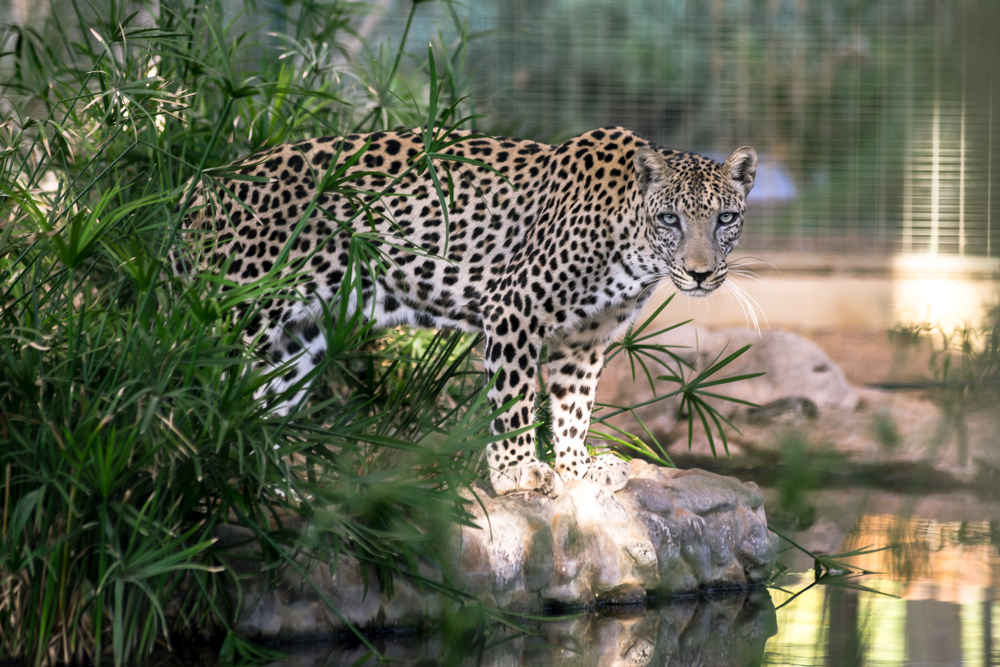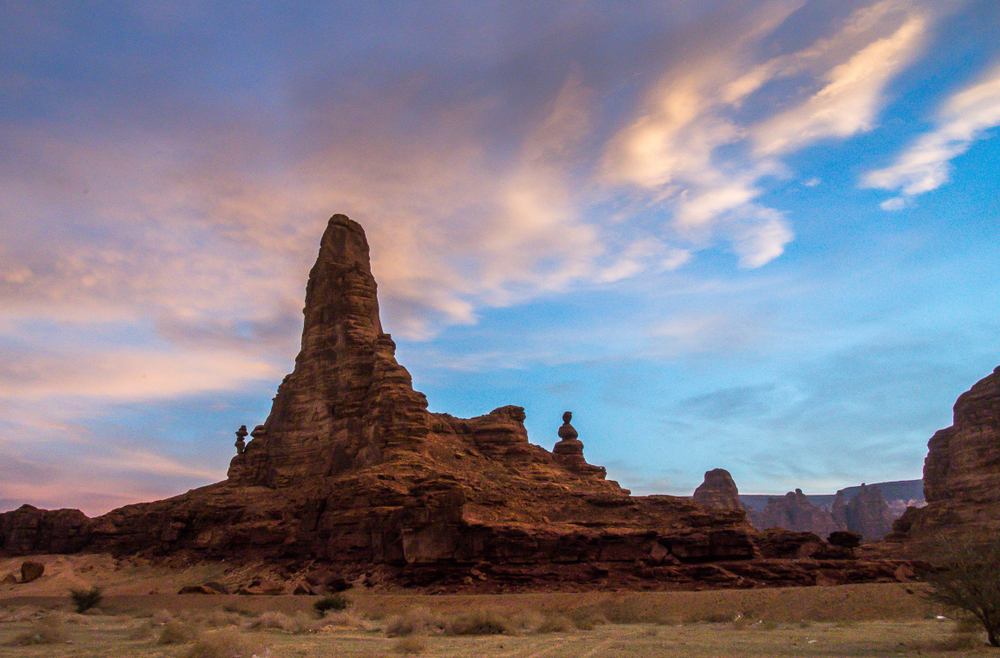
In February, Saudi Arabia’s Crown Prince Muhammad Bin Salman launched a landmark project in the Kingdom’s historic region of Al Ula. The Sharaan Nature Reserve was announced as part of a series of strategic projects being carried out by the Royal Commission of Al Ula (RCU). This month, in line with the efforts of RCU to transform the region responsibly in order to balance the protection of its natural and cultural heritage, a $20 million deal to save the Arabian leopard has been signed between the Commission and Panthera, a global wild cat conservation organization, as reported by Arab News.
Today, the Arabian leopard, which is indigenous to Al-Ula, is classified as critically endangered. Speaking to the news site, Dr. Fred Launay, President of Panthera, explained that estimates put the number of Arabian leopards in the wild to fewer than 200, mainly due to loss of habitat and prey, as well as persecution in livestock areas. The newly established Sharaan Nature Reserve aims at providing a sanctuary for the protection, preservation, and reintroduction of endangered species native to Saudi Arabia such as the endangered leopard. In addition, it will focus on the rehabilitation of Al Ula’s natural ecosystem and the development of vegetation by planting indigenous acacia trees.

Al Ula Species
Speaking on the newly signed deal, Prince Badr bin Abdullah bin Farhan, the minister of culture and RCU governor, said, “The signing of the agreement is a major milestone in our shared ambitions to reintroduce the Arabian leopard population in the region and join global partners to support the preservation of these wild cat populations worldwide. It is our duty to protect, conserve and build the population numbers to preserve the species from becoming a footnote of history […] Our partnership with Panthera will help ensure that populations in other countries around the world are preserved before they reach the levels of endangerment faced today by our precious native big cats.”
The Sharaan Nature Reserve already has a number of unique animals roaming around since its establishment. During the launch event in mid-February, local park rangers trained by the Saudi Wildlife Authority together with the Mweka Wildlife College in Tanzania released 10 Nubian ibexes, 10 red-necked ostriches, and 20 Idmi gazelles into the reserve.

















